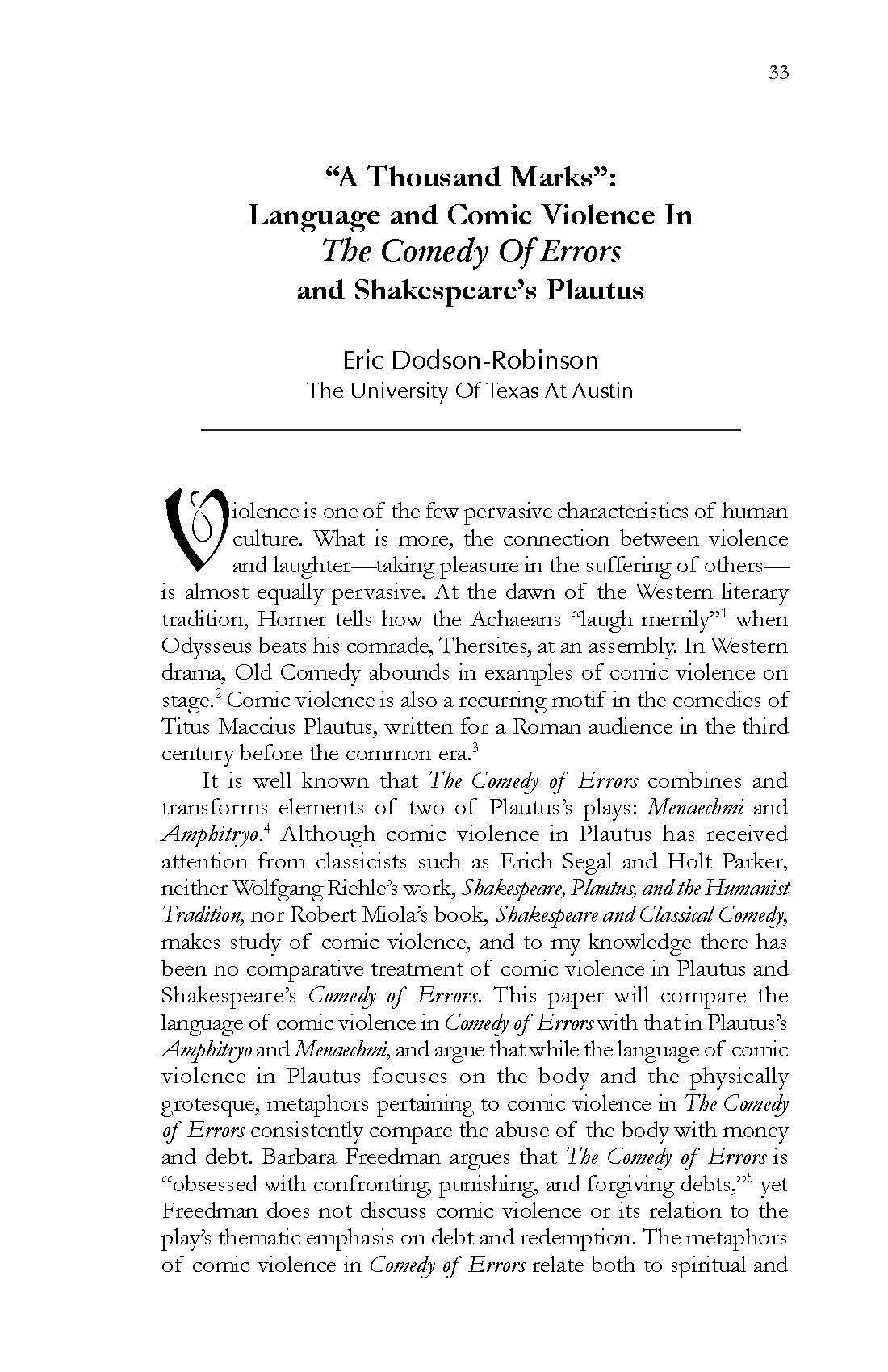A “Thousand Marks”: Language and Comic Violence In The Comedy Of Errors and Shakespeare’s Plautus
Main Article Content
Abstract
Violence is one of the few pervasive characteristics of humanculture. What is more, the connection between violence and laughter—taking pleasure in the suffering of others—is almost equally pervasive. At the dawn of the Western literary tradition, Homer tells how the Achaeans “laugh merrily”1 when Odysseus beats his comrade, Thersites, at an assembly. In Western drama, Old Comedy abounds in examples of comic violence on stage.2 Comic violence is also a recurring motif in the comedies of Titus Maccius Plautus, written for a Roman audience in the third century before the common era.3
Article Details
Section
Articles
